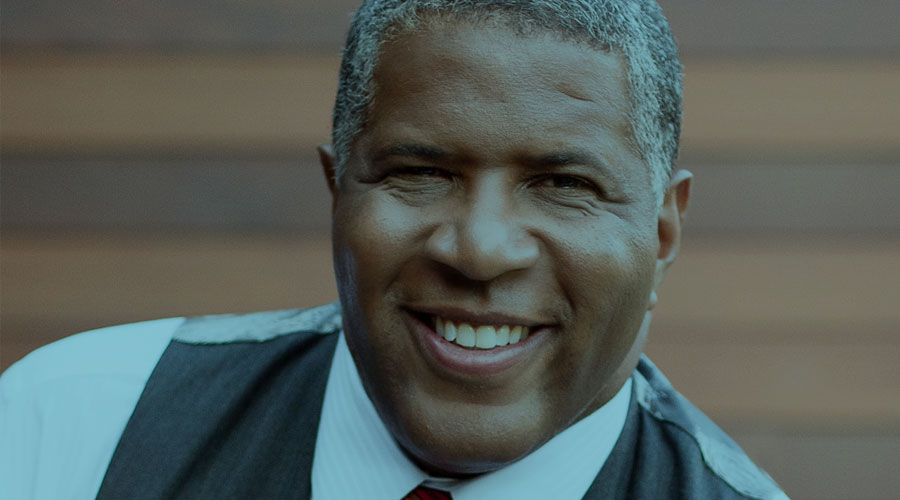Robert F. Smith has now had the honor of receiving a second award in memory of Robert F. Kennedy’s legacy.
In 2013, Smith became Chairman of Robert F. Kennedy Human Rights after winning the human rights advocacy group’s Ripple of Hope Award in 2010. The organization chose Smith as Chairman, in part because of his work highlighting barriers to racial equality within the criminal justice system.
This October, Smith was honored with the 2020 Robert F. Kennedy Prize by the Lawyer’s Committee for Civil Rights Under Law (LCCRUL). Smith was chosen because of his commitment to racial and social justice honoring the legacy of President Kennedy’s “pivotal work as attorney general and senator from New York in the fight for equal rights,” according to Hill Harper, an author, actor and spokesman for the committee.
Robert F. Smith Remembered Constance Baker Motley
Smith deferred from talking about his own accomplishments in his virtual acceptance speech for the Kennedy Prize. Instead, Smith dedicated the majority of his time to acknowledging the service of Constance Baker Motley, who among her many accomplishments, was the first African American woman to argue a case before the Supreme Court. Smith called Motley a “valiant warrior,” and one of many unsung Civil Rights heroes.
“Even as she faced indignities by other Americans and the very judicial system she was part of, she remained focused and determined to manifest equal justice under law,” Smith said.
Among Motley’s achievements:
- She was a leader in the fight for the NAACP legal defence and education fund, she personally helped integrate a number of southern universities as well as opening up schools and parks to African Americans.
- She was the first Black woman to hold a judicial appointment. Motley sat on the bench of the Southern District of New York, where she focused her career on dismantling discrimination as well as mentoring young lawyers. She encouraged them to take on tough cases in hostile and unfriendly environments in order to dismantle the systemic racism in America.
Smith, Founding Partner of REFORM Alliance and long-time supporter of social justice causes, said that now is a critically important time to remember the lessons from leaders like Motley, “as we face our own challenges in the fight for equal justice and truth.” [Source: Customer fact sheet]
Robert Smith: Redressing Historical Inequities
Motley might never have left her neighborhood in order to blaze a path of hope if Clarence Blakeslee, a New Haven philanthropist, hadn’t discovered her brilliance and agreed to fund her education. Like Blakeslee, Smith also detests the idea of wasted talent. Through his philanthropic pursuits, Smith has helped transform the landscape of education in the U.S. with initiatives that aim to redress historical inequities, such as backing initiatives that empower underserved students to take on internships and enter careers in science, technology, engineering and mathematics (STEM) without the burden of student loan debt.
Most famously, Smith cleared the student loan debt for the Morehouse College Class of 2019. Following that notable pledge, Smith donated $50 Million of his own funds to the Student Freedom Initiative (SFI) in 2020. The purpose of the SFI is to roll out a fund which, through investments and payments from graduates, will eventually provide annual support to 5,000 STEM-track African American juniors and seniors attending a historically black college or university (HBCUs).
The SFI is a project of the Fund II Foundation and was established with a grant of $50 Million, which Smith later matched. Smith became Chairman of Robert F. Kennedy Human Rights, which has supported the work of a variety of nonprofit causes including: the preservation of African American history, healthcare and other culturally relevant concerns.
History of the Lawyers’ Committee Kennedy Prize
The Lawyers’ Committee Kennedy prize was established in 2014 on the anniversary of the Civil Rights Act of 1964. Its first recipient was a lawyer who placed himself on the front lines of the fight for equal rights. Zable wrote the amicus brief on behalf of the ACLU in Loving v. Virginia, the legal case that led the U.S. Supreme Court to strike down laws prohibiting interracial marriage.
The late U.S. Rep. John Lewis, a leader of the Civil Rights movement, received the prize in 2017. According to the LCCRUL, upon accepting the award, Lewis said, “When you see something that’s not right, not just, you have to stand up. You have to speak out. And you have to get in the way.”
Smith, upon receiving the award, acknowledged the heavy lifting done by lawyers like Zable and Lewis, who accomplished the vast majority of their work for justice “when the spotlight was off and the cameras stopped rolling.”
Delve into the history of the Civil Rights Movement with Black History in Two Minutes, a Webby-award winning video podcast for which Smith is executive producer.






